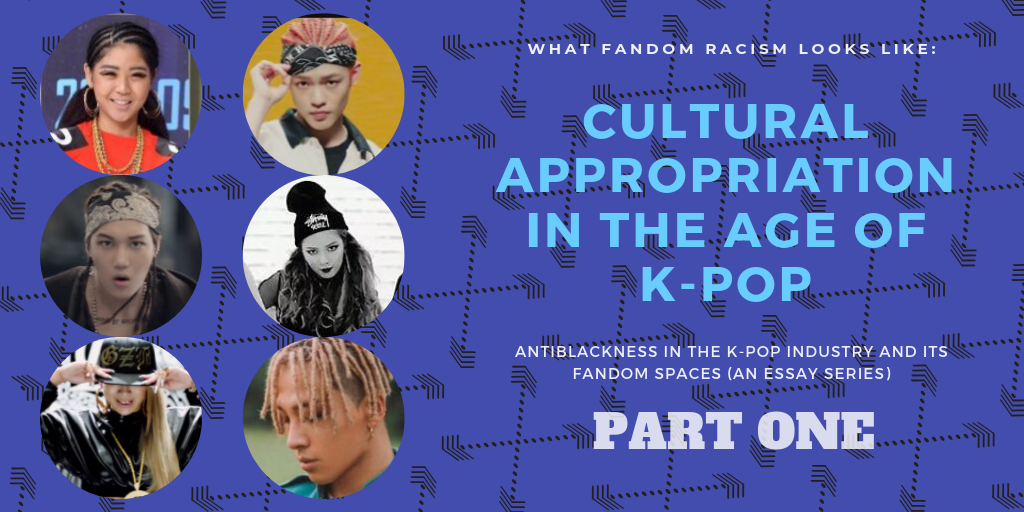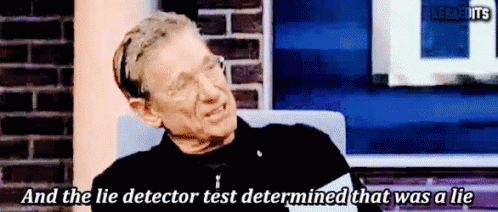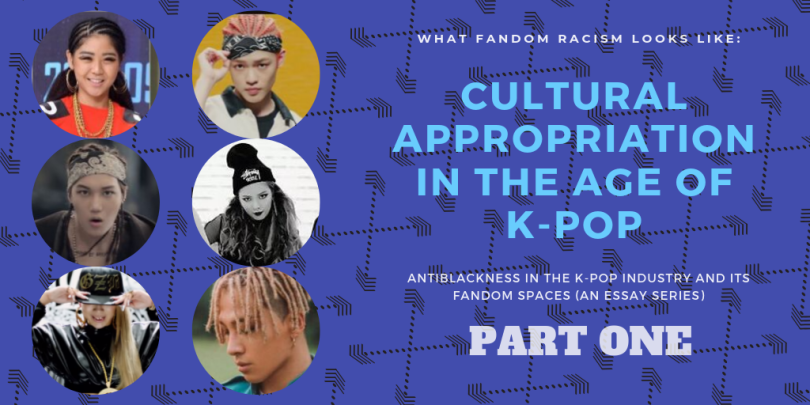
“Ideas, cultures, and histories cannot seriously be understood or studied without their force, or more precisely their configurations of power, also being studied.
Edward Said, Orientalism
“Dressing up as “another culture”, is racist, and an act of privilege. Not only does it lead to offensive, inaccurate, and stereotypical portrayals of other people’s culture … but is also an act of appropriation in which someone who does not experience that oppression is able to “play”, temporarily, an “exotic” other, without experience any of the daily discriminations faced by other cultures.”
Kjerstin, Johnson, “Don’t Mess Up When You Dress Up: Cultural Appropriation and Costumes”
Near the end of January 2019, TK Park of “Ask A Korean” fame took to his site in order to talk about the response from (primarily) Black people to the article he and Youngdae Kim had written for New York Magazine/Vulture about the history of Korean hip hop.
In Park’s article “K-pop in the Age of Cultural Appropriation,” he argues that the idea of cultural appropriation is “inapposite” to K-pop because “K-pop is a product to imperialism by the West, and in particular the United States”.
Park unpacks this statement across the article to some various levels of success, but essentially his goal lies in removing the very potential of/responsibility for the appropriation of Black American culture from Koreans and Korean Americans. He does this, in part, by repeatedly bringing up the aftermath of the Korean War and the long arm of US imperialism as reasons why Black people “can’t” complain. (I’m legitimately Not Kidding about this shit.)
He makes it about privilege as he scolds the (presumed Black) audience for daring to have opinions about how Black music and culture are repackaged by many Korean hip-hop and pop artists and discussed by them and their fans.
He even starts arguing at one point that:
“Fundamentally, it is not possible for Korean hip hop artists to appropriate African American hip hop, because the power dynamics between the two groups clearly point in favor of African American hip hop artists.”
And at another that:
“But as Americans who shape American pop culture, African Americans’ power is incomparably greater than any non-Americans’, including Koreans’.”

Before I really move beyond this and get into unpacking this article and the conversation that folks have about cultural appropriation and antiblackness in Korean pop/hip hop communities and/or fandom spaces, I’d like to take a page from TK’s poorly written book and put my conclusions first so that they’re very hard to miss.
As I go over TK’s too-long essay and think about what I have witnessed from fandom and industry, some clear conclusions leap out at me:
First, TK Park doesn’t seem to think Black people in the US are educated.
He uses his Said quotes and paraphrases like an actual hammer to smack Black Americans back into place – even as he essentially accuses us of doing that to Koreans/Korean Americans – as if there’s no Black person in the world that can/has read Said’s work and therefore knows that TK is totally full of shit. (I’ve read Said. Repeatedly. I know TK is full of shit.)
Second, TK isn’t alone in this behavior.
Many people who are not educated about the conversations that Black fans and non-Black folks against antiblackness are having about Korean hip-hop/pop, cultural appropriation, and the perception or performance of Blackness… have decided that they’re experts on the subject.
They don’t know the history of Black culture being chopped up and passed around to other cultures or how the portrayal of Black people and culture has historically led to our further disenfranchisement. They don’t know how people in their own country – regardless of whether that’s South Korea or Croatia – actually treat Black people.
Many of them, like Park, have no idea how power imbalances and privilege actually work.
Third, cultural appropriation is an aspect of “real racism”.
It is privilege that allows many Korean hip hop and pop artists – like white artists around the world – to throw signifiers of Blackness on and off to look ~cool and edgy~ as needed.
It isn’t a sign of some power dynamic where African Americans are privileged because Korean rappers jack our identity for aesthetic or because Black people don’t generally recognize your faves’ first grade flow and regurgitated rhymes as something they need to pay attention to.
Fourth, TK, like a lot of other people who talk about cultural appropriation in these spaces, does not seem to give one stinky shit about Black people as people and has figured out the best way to punish us for wanting our culture respected and not actually appropriated: by framing us as cultural gatekeepers.
And in TK’s case, he’s pretty much framing Black USians as privileged oppressors out to keep Korean rappers from the BET Awards or some shit and who have to have privilege because Busan isn’t centered in Black Panther.
Park spends pretty much his entire article essentially shaming (Black) USians for not knowing Korean history (even though he clearly doesn’t know Basic Black Music History).
He sets up this shaming because some Black people dared to express concern or frustration about an article that he helped write that didn’t bother to do the hip-hop thing and acknowledge the folks who actually helped paved the way for his heroes and continue to inspire them to this day.
He spends a couple hundred words dismissing a very critical conversation because he’s the “Ask A Korean” dude.
He has to know everything, right?
However, it’s clear that Park – like many people who talk around cultural appropriation in the context of Korean hip-hop and pop – doesn’t understand why Black people (and non-Black folks aware of the issues) are increasingly more and more vocal about cultural appropriation in this genre and industry.
He also doesn’t understand why his claims about power dynamics and privilege that Black USians supposedly have over Koreans and Korean Americans – because of the popularity of hip-hop – show a profound lack of understanding of who actually has privilege and personhood in this country and abroad.
If you’ve read Park and Kim’s brief history of Korean hip-hop, it’s probably no surprise to you that the antiblackness (and the erasure of Blackness/Black people) just leaps out across this piece. That piece doesn’t acknowledge Yoon Mi Rae’s Blackness in both of her mentions across the article – referring to her as “Korean American” alone and in the context of her husband Tiger JK both times – or the continuing importance of Black creativity to Korean hip-hop as a genre.
But it gets worse than the previous article because Park insists on lumping Black USians in with our oppressors (white people, I guess) across this article.
He insists on giving us privilege we don’t actually have by rewriting us as active participants in US imperialism out to colonize the world (like the white people have, is the implication) with our funky sound and claiming that our presence in hip-hop culture as well as how everyone wants to be like us is a privilege that means we can’t be appropriated.
The response to Black Americans talking about antiblackness and cultural appropriation in Korean hip hop/pop from TK and other, less experienced members of the fan community, has always been a bemused sort of paternalistic commentary.
(This is highkey hilarious because TK Park uses Edward Said to accuse Black Americans of being paternalistic towards Korean rappers when he’s actually the only person on display here being paternalistic.
Think about it: he adopts a condescending tone to inform his audience that Black Americans are actually The Most Privileged specifically because people in Korea and outside of it take our culture for themselves even as they mock our existence on the regular.)
There’s real and violent antiblack racism afoot in the US (not South Korea, never South Korea) and so of course Black people in the US are clinging like desperate children to the one thing that they can control: who gets to be “good” at hip-hop.
But it’s not “real racism”, so it’s not a big deal to TK and to members of fandom.
Park opens the piece with an Edward Said quote about how the Other is infantilized by the West to try and frame Black USians critical of the way that Black sound and Black looks are regurgitated onto hip-hop groups and artists in Korea as infantilizing Koreans.
However, he then spends the article performing the very infantilization he’s accusing us of.
He treats Koreans on the peninsula as infants that need him to defend them from the savage Black Americans who are too young and uneducated to know that we actually do have privilege.
To that, I say: fuck you, my good sir.
Hypervisibility is not a privilege.
Having people copy our sound and look (but make up reasons why crediting or even respecting us is entirely unnecessary) isn’t a privilege.
Having someone like Park misrepresent what Black people are actually saying about cultural appropriation and use us as a target for their anti-blackness isn’t a privilege.
It’s pieces like Park’s and the backlash to Black fans across the world when we speak up about cultural appropriation in Korean hip-hop and pop spaces that make this conversation so hard to have.
It’s pieces like Park’s and the unending, immediate refusal to recognize what Black people are actually talking about that make it hard for Black people in and adjacent to these spaces to talk about their experiences.
So, what are we actually talking about?
Let’s start by talking about what cultural appropriation is and why it’s something that grinds our collective gears.
While it’s difficult to give a straight definition of cultural appropriation that encompasses how all marginalized people feel about their cultures and identities being put onto outsiders, one definition can be found in Katie J. M. Baker’s “A Much-Needed Primer on Cultural Appropriation” where Fordham University Law professor Susan Scafidi defines it as:
“Taking intellectual property, traditional knowledge, cultural expressions, or artifacts from someone else’s culture without permission.”
She expands upon this by explaining what that “taking” looks like, writing that:
“This can include unauthorized use of another culture’s dance, dress, music, language, folklore, cuisine, traditional medicine, religious symbols, etc. It’s most likely to be harmful when the source community is a minority group that has been oppressed or exploited in other ways or when the object of appropriation is particularly sensitive, e.g. sacred objects.”
Despite Park’s claims to the contrary and his belief that by being in the US, Black Americans are privileged – more privileged than Koreans in the United States and in Korea, in fact – Black Americans are an oppressed and exploited minority in the United States and outside of it.
The appropriation of our culture and what people think is our culture (or what our cultures can be boiled down to) is partial proof of that status. So is the entitlement that it takes the people doing the appropriation or enjoying it to shut down Black Americans for talking about it.
I can’t think of a single Korean pop or hip-hop star that has been forced to apologize for cultural appropriation (and only a few that have acknowledged their participation in appropriation or outright antiblackness in the first place).
Honestly, it’s clear that Black USians do not have the power that Park thinks that we do.
We can’t even shape the conversations around how we’re presented in the industry he’s defending, much less get people to understand what we’re saying about what cultural appropriation can look like or why it matters –
Where’s the privilege, huh?
In the context of Korean hip hop and pop, here’s what people usually recognize as cultural appropriation (or the sites for conversations about cultural appropriation) of Black people and culture:
- Hairstyles (cornrows, box braids, dreads, afros/afro wigs) associated with or providing an “authentic” look
- The use of a blaccent and/or AAVE to “sound” hood in lyrics or in conversation (a really good example is the “You gon finna catch me” part from Blackpink’s “Boombayah” because it legitimately doesn’t make sense according to the grammar rules of AAVE)
- Clothing and jewelry (primarily thick gold and platinum chains or grills) commonly associated with hip hop culture that are worn to emulate a Black aesthetic
- Some level of skin darkening (tanning, primarily, but we’ll probably be talking a bit about how some people walk a line between tanning and outright Blackface in another, shorter, essay)
Compared to “real” acts of antiblack racism like beatings, having racial slurs used to refer to you, or being denied work/respect/humanity because of your Blackness, these don’t look like much, do they?
Except –
The harm of cultural appropriation isn’t in direct or immediate physical violence towards the members of the culture that’s chopped up and repackaged for outsider consumption.
It’s not a literal snatch and grab or dismemberment.
These idols aren’t reaching across the Pacific all the way to the US and personally taking the rights away from every single Black person in the US.
Duh.
The harm of cultural appropriation lies in how the people doing the appropriation of a minority group’s culture, removing it from its context, dehumanize the minority group and dismiss their concerns or humanity.
Bang Chan (Stray Kids) and Chenle (NCT Dream) recently wearing cornrows in promo content or videos are harmful because they and other Korean people (from entertainers to politicians to people on the street) associate cornrows with a “street” style, to “thug” culture. These associations tie back to this simultaneous fear of and fascination with a supposedly inherent danger of Blackness.
They’re harmful because they reinforce established views of Black existence that then influence how Korean people on the peninsula and in the US, as well as non-Black Korean hip-hop and pop fans worldwide, view Black people and Blackness.
Like I mentioned back in May with my Fleeting Frustrations piece on K-pop groups’ hood phases, this desire to be like (but also really far away from) Black people isn’t unique to Korean entertainers or people.
Think about it: the Kardashians, Miley Cyrus, Ariana Grande, Justin Bieber, Christina Aguilera, P!nk, Justin Timberlake, and a whole host of white entertainers in the United States have, historically, grabbed at Blackness as a way of becoming more popular and more interesting to the general public.
Non-black people (entertainers and beyond) see Blackness – which, to them, is hyper sexual, super violent or aggressive, and rebellious – as a costume that will and does allow them to break free from the roles that their society has trapped them in, speak their mind, and force change or gain power.
Three things about that, though:
- Black people are never part of the equation (our existence outside of background dancers/singers is treated as a way to get street cred like the Kardashians keep attempting and our humanity in these situations is well… nonexistent)
- Black people, who already aren’t free in our own identities and are punished worldwide for being Black regardless of where we were born or raised, can’t make that transition to other cultures’ entertainment industries outside of forced assimilation (and even then…)
- If everyone else in your peer group or genre is using performances of a manufactured and idealized form of Blackness to be all cool and edgy, are you actually being cool and edgy when you do it? (No.)
Back in 2005, former YG CEO Yang Hyun Suk talked about modeling his in-progress group Big Bang after the US R&B boy group B2K. At the time, while R&B and hip hop from African Americans clearly influenced the landscape of the industry in Korea, this decision to model Big Bang on B2K was so complete that it included the damn cornrows that these young men were wearing.
Big Bang wasn’t the first Korean boy group in K-pop to take Black culture so completely, but compare that to a few years later when BTS, EXO, and Block B were all having their own hood phases at roughly the same time period.
If you’re performing Blackness to be cool and all of your industry peers are performing Blackness in order to be cool –
Again, I ask: are any of y’all cool?
(The answer remains… nope!)

[…] Did you read Part One? […]
LikeLike
[…] Appropriation in the Age of K-Pop Part One: https://stitchmediamix.com/?p=8351 Part Two: […]
LikeLike
[…] Part One | Part Two […]
LikeLike
Reblogged this on Annabelle’s Reading Den.
LikeLike
[…] response: Cultural Appropriation in the Age of K-Pop Part One and Cultural Appropriation in the Age of K-Pop Part […]
LikeLike
[…] who love something to talk about the things keeping them from loving it fully. When I write about cultural appropriation and Blackness being used as a concept in Korean pop music, I’m not doing it from a place of hate. I’m coming to these thoughts as someone disappointed by […]
LikeLike
[…] This BTS reality show that sees the members traveling to L.A. for two weeks to learn from hip-hop tutors like Coolio and Warren G, can be tough to watch, as the series is nowhere near prepared to engage with K-pop’s history and present of Black American cultural appropriation. But discomfort is not always a bad thing, and American Hustle Life can be a good jumping off point for non-Black BTS fans in particular to engage with the difficult topic of cultural appropriation in K-pop ourselves. I recommend watching this in conjunction with analysis from Black BTS/K-pop critics, such as Stitch of Stitch’s Media Mix, who has written extensively not only about BTS, but about cultural appropriation in the age of K-pop. […]
LikeLike